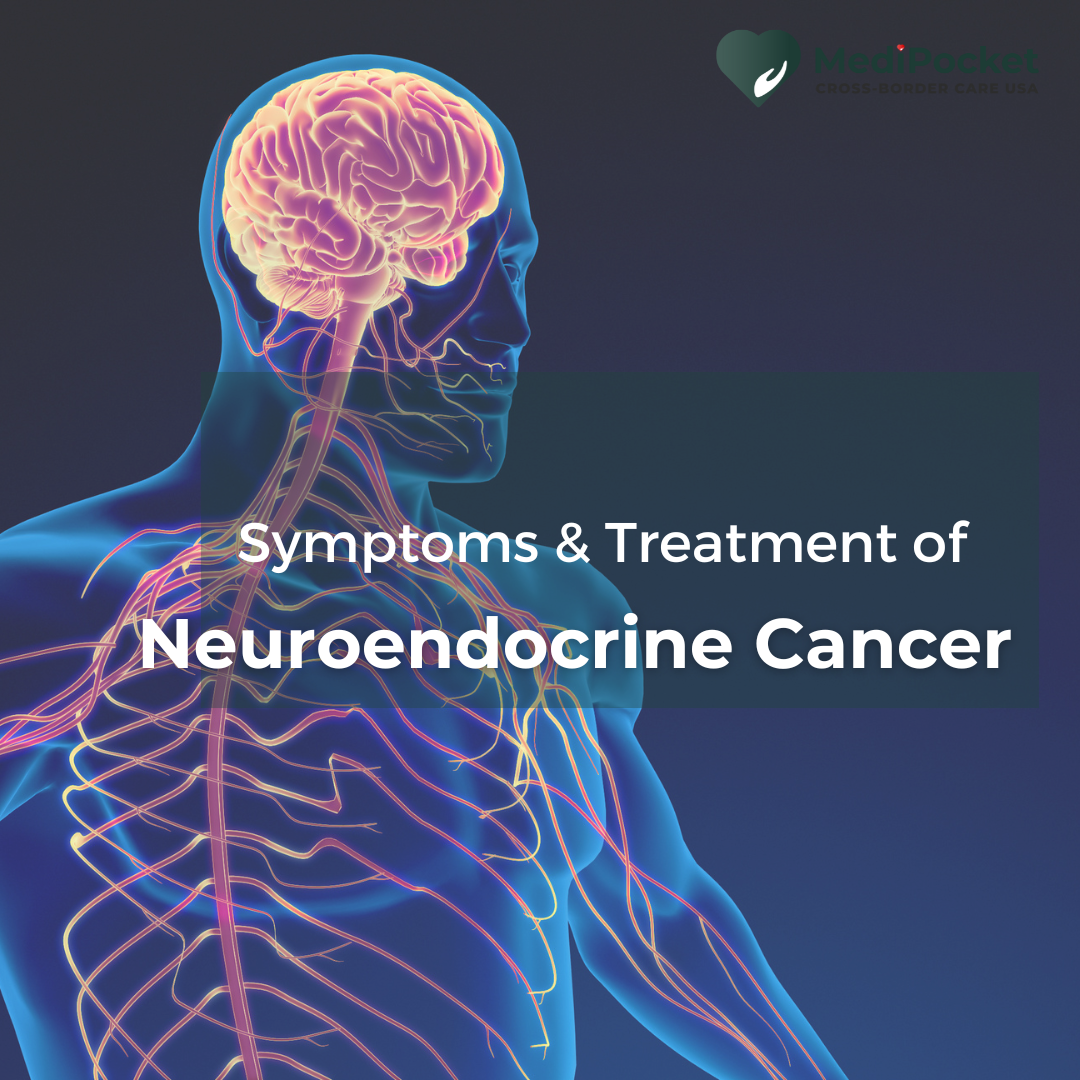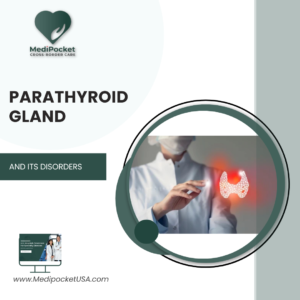What is Neuroendocrine Cancer?
Neuroendocrine cancer is a rare type of cancer that originates from neuroendocrine cells, which have both hormone-producing and nerve-like properties. These cancers can occur in many areas, including the pancreas, lungs, gastrointestinal tract, and other organs. Neuroendocrine tumors (NETs) can range from slow-growing to aggressive types, which may spread rapidly. Due to their hormone-secreting nature, these tumors often produce diverse symptoms, making early detection and treatment challenging.

Symptoms of Neuroendocrine Cancer
The symptoms of neuroendocrine cancer can vary significantly depending on the tumor’s location and the hormones it releases. Here are some of the most commonly observed symptoms:
- Flushing and Sweating: Flushing, characterized by sudden reddening of the skin, often on the face and neck, is a hallmark symptom of hormone-secreting NETs, especially those in the gastrointestinal tract. These flushes can last from a few minutes to hours and may be accompanied by sweating.
- Digestive Issues: Patients may experience abdominal pain, bloating, nausea, and diarrhea. Diarrhea, in particular, can be severe and impact daily life, as some neuroendocrine tumors release excess serotonin that affects gastrointestinal function.
- Respiratory Symptoms: NETs located in the lungs can lead to coughing, wheezing, shortness of breath, and chest pain, often mimicking respiratory infections or asthma.
- High or Low Blood Sugar Levels: Pancreatic NETs can produce hormones that alter blood glucose levels, potentially leading to symptoms like dizziness, sweating, and confusion due to hypoglycemia or hyperglycemia.
- Carcinoid Syndrome: Advanced cases may result in a combination of symptoms called carcinoid syndrome, which includes intense flushing, rapid heart rate, and diarrhea due to an overload of serotonin.
These symptoms are not exclusive to neuroendocrine cancer and overlap with other common illnesses, which often results in misdiagnosis or delayed diagnosis.
Diagnosing Neuroendocrine Cancer
Diagnosing neuroendocrine cancer often involves a combination of imaging, lab tests, and biopsies:
- Blood and Urine Tests: Elevated levels of hormones or substances like chromogranin A (CgA) in the blood can be indicators.
- Imaging: CT scans, MRI, and PET scans are used to locate the tumors.
- Biopsy: A tissue biopsy confirms the diagnosis, where a sample is examined for cancer cells.
Treatment Options for Neuroendocrine Cancer
The treatment approach depends on the tumor’s type, location, and aggressiveness. Available treatment options include:
- Surgery: For localized neuroendocrine tumors, surgical removal is often the primary approach, aiming to eliminate the tumor and reduce hormone secretion. In some cases, surgery can also be palliative, alleviating symptoms in patients with advanced disease.
- Medications and Targeted Therapies:
- Hormone-Inhibiting Drugs: Octreotide and lanreotide, somatostatin analogs, are common drugs used to inhibit excessive hormone production, particularly for carcinoid syndrome.
- Targeted Therapies: Medications like everolimus (Afinitor) and sunitinib (Sutent) work by blocking specific proteins or pathways that contribute to tumor growth, especially effective in pancreatic neuroendocrine tumors.
- Radiation Therapy: Often used when surgery isn’t an option, radiation therapy can help control the tumor’s spread. Standard radiation methods may be used in cases where the tumor is isolated.
- Peptide Receptor Radionuclide Therapy (PRRT): A newer treatment specifically for neuroendocrine tumors, PRRT involves administering radioactive peptides that target and destroy cancer cells. This treatment shows promise in patients with advanced disease who have specific receptors on their tumor cells.
- Chemotherapy: While often reserved for aggressive or widely spread NETs, chemotherapy may be used in cases such as high-grade small cell neuroendocrine cancers.
Managing Neuroendocrine Cancer: Beyond Treatment
In addition to medical treatment, patients with neuroendocrine cancer often benefit from supportive therapies:
- Nutritional Support: Dietary adjustments can help manage digestive issues and maintain energy levels.
- Emotional and Psychological Support: As with other chronic illnesses, mental health support is crucial for patients and families coping with a neuroendocrine cancer diagnosis.
Conclusion
Neuroendocrine cancer’s diverse presentation and variable progression make it a challenging diagnosis. However, advancements in targeted therapies, hormone-inhibiting drugs, and specialized treatments like PRRT offer hope. Consulting with specialists in neuroendocrine tumors is essential to access tailored treatments and improve quality of life for those affected.
Contact MediPocket USA to get exclusive treatment from the top hospitals in the USA.









